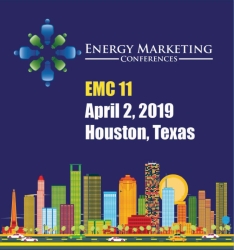|
|
|
|
|
Direct Energy Raises Potential Low-Income Customer Aggregation As Solution To Mass. AG's Concerns
The following story is brought free of charge to readers by EC Infosystems, the exclusive EDI provider of EnergyChoiceMatters.com
In comments to the Massachusetts DPU, Direct Energy suggested that a DPU-administered aggregation of low-income customers could address concerns raised by the Massachusetts Attorney General about service to low-income customers in the retail electric market.
Direct Energy's comments came in a DPU investigation reviewing the retail energy market and various customer protections, the opening of which had been first reported by EnergyChoiceMatters.com (see story here).
Direct Energy said in its comments that, "The Department and the Attorney General have expressed
concern that low-income customers are perhaps being charged rates that are higher than
the rates charged to other customers. One possible solution to this issue is for the
Department to sanction and oversee an aggregation for low-income customers. The
aggregation would be similar to the municipal aggregations that have been executed in
the Commonwealth, but the defining characteristic of this aggregation would be the low-income
designation rather than a political or geographic boundary. The Department
would have many options at its disposal to execute the aggregation, but one would be
almost like a call option. The Department could work with a supplier or suppliers to prepare the aggregation of customers to be switched to a retail supplier. The retail
supplier would not execute the switch transactions until it could guarantee that it would
match or beat the utility's standard offer rate. The aggregations could be a series of
short-term contracts with the customers, or if the Department chose, it could be a longer-term,
fixed price that might vary from the standard offer rate over time. The renewal
process could also be overseen by the Department, ensuring protections for the low-income
group."
Direct Energy also said that, "Direct Energy believes that instituting monitoring of the market in some
form in order to ensure that low-income customers are not treated unfairly should be one of the first
priorities of a newly-established MEMIT [a proposed collaborative process discussed further below]."
"Additionally, Direct Energy supports the notion of enhanced penalties for violations of Department
rules when those violations are committed against customers identified as low-income customers, if
supported by the available evidence," Direct Energy said
Direct Energy also suggested the selection of an alternative default service provider as removing a barrier to effective competition
Direct Energy noted that, "Under the MA Restructuring Act, standard offer
service could be offered by an entity other than the incumbent utility. The Restructuring
Act states that the '[D]epartment may authorize an alternate generation company or
supplier to provide default service, as described herein, if such alternate service is in the
public interest. In implementing the provisions of this section, the department shall
ensure universal service for all ratepayers and sufficient funding to meet the need
therefor.' G.L. c. 164 sec. 1B(d)." [emphasis by Direct omitted]
"The implementation of a non-utility default service provider will likely resolve many of
the market issues that are present today. At a minimum, it would eliminate the cross-subsidization
issue addressed in sub-section 5 of this answer. By definition, if a non-utility
company was the standard offer service provider, it would not have the resources
of the distribution business to subsidize it so it would be competitively priced. A non-utility
standard offer service provider could also become the common billing entity for
electric supply and delivery, further allowing the utilities to focus on their core operations
of transmission and distribution. The Department should consider moving toward that
model and perhaps open a new docket that would formally investigate the potential
consumer benefits and alternative business models associated with moving that service
away from the utility. A thorough review of this alternative would allow the Department
to fairly evaluate and consider which entity would be better equipped to offer a more
competitively-priced service- a fully allocated utility or an alternative non-utility
provider. Many studies performed over the years have shown that competitive entities
are able to provide services more efficiently than regulated utilities," Direct Energy said
Direct Energy suggested the creation of a collaborative working group process, the Massachusetts Electricity Market Improvement Team, to address many of the issues raised by the DPU in its notice of inquiry.
"Direct Energy recommending that
it may be more appropriate to move the issue to a working group or groups, and have the working
groups generate productive solutions that will address known or proven market shortcomings. As
such, Direct Energy respectfully requests that the Department convene a standing collaborative
working group that will be capable of addressing some of the more challenging questions presented
below. For ease of communicating this concept in this document, the group will be referred to at the
Massachusetts Electricity Market Improvement Team or 'MEMIT'. The MEMIT should be
empowered to address and advise the Department of some of the more technical implications
associated with the concepts presented in the Department's Comment Request and that are certain to
arise moving forward even as some of the tools envisioned in these questions are implemented," Direct Energy said
"Implementing the MEMIT is not intended to delay implementation of any tools that might be
needed for the Department to oversee the retail electricity market. Rather, it is intended to ensure
that the Department is collecting the right data, looking at the right information, analyzing it in an
appropriate context, developing more informed decisions and implementing more effective tools over
time," Direct Energy said
Direct Energy further recommended a specific "task force" to address the billing paradigm for the retail market
"In response to the Department's questions regarding the revision of utility billing for
suppliers' services, Direct Energy recommends that a separate task force be convened to specifically
address the changes that are needed to the current billing paradigm. For a variety of reasons, the
current system is not working, and many creative options are available that would enable a robust,
customer-focused, and educational electricity invoice. Such a consumer invoice would enable many
more advanced retail products and services, but unfortunately, is not practically available for
residential consumers today," Direct Energy said
"The best billing outcome for improving customer awareness of competitive suppliers and
competitive supply options would be the implementation of Supplier Consolidated Billing ('SCB').
SCB offers many consumer benefits and is more consistent with how a productive combination of
product suppliers and transportation suppliers co-exist. UPS, for example, won't send you a bill
from a department store, but it makes infinite sense for the department store to charge you for
transportation and shipping. Direct Energy fully understands that a move to SCB would require a
legislative change and is outside the scope of this docket. However, SCB is the optimum end-state
for the most effective and efficient electricity market where suppliers can develop, sell and
appropriately invoice customers for, and educate customers about, advanced energy products," Direct Energy said
"Moving forward, the Department should consider billing from the customer's perspective as an
engaged energy consumer and not from the perspective of a 'ratepayer' or of the utility. The bill
should emphasize what is important to the customers. It should focus on product attributes, energy
efficiency attributes, renewable attributes, budget attributes, frequent flyer miles or whatever other
concerns the customer has. Items like regulated distribution rates and riders that go out to the fifth
decimal place and are not manageable, arcane industry jargon and other items historically placed on
electricity bills are not of great interest to the customer. The consumer needs and wants to be made
aware of things that can be impacted. Like an invoice from Amazon.com, the detail is in the
products and product attributes. The transportation/shipping charge is a line item," Direct Energy said
"The type of billing arrangement discussed in this question warrants further and comprehensive
stakeholder discussion. In a perfect non-SCB world, the billing host would present all of the
suppliers' products on the bill in the exact format that the supplier would put them on their own
hypothetical SCB bill. That would require the utility to be able to invoice for multiple products from
multiple suppliers in a manner that wouldn't further confuse the consumers," Direct Energy said
"The billing host could be the incumbent utility. Alternatively, similar to the website concept
discussed above, the billing function could be outsourced. There is no fundamental reason why the
utility is in the billing service business. Billing services are not in any way a monopoly function.
Outsourced utility billing could still fall under the purview of the Department and the Department
could regulate the distribution bill format, the bits of information from the distribution company that
are required on the bill, and other bill aspects. The independent billing entity could also be required
to submit supplier bills in the same envelope and the Department could mandate that certain bits of information be included on those invoices. Beyond that, however, the suppliers could coordinate
with the billing host to design and deliver an invoice that would mirror exactly what the suppliers
hypothetical SCB would look like. The billing host could be a for-profit entity and would be paid
independently by the utilities and by the suppliers. If the billing host was the utility, it should be
required to offer billing flexibility, within the bounds of what is technically feasible, not within the
bounds of what its current billing system can offer," Direct Energy said
"Obviously, there are many other issues that would need to be discussed and resolved before the
Department can issue meaningful requirements for comprehensive billing. Direct Energy urges the
Department to convene a task force that is specifically challenged with addressing the myriad of
billing issues associated with this question. This task force should be commissioned with defined
mandates and deadlines that are solely focused on alternative billing solutions. This task force,
which should be separate and distinct from the MEMIT collaborative, should be required to report
back to the Department with its findings and recommendations not longer than one year after it is
convened," Direct Energy said
Direct Energy also favored an increased financial assurance requirement for suppliers engaged in door-to-door marketing
While Direct Energy cautioned against regulations that will not lead to market improvements, Direct Energy said, "because Direct Energy firmly believes that the market participants should be acting in an
ethical manner, it is supportive of imposing an increased financial assurance requirement on
companies engaged in door-to-door marketing. But before imposing the requirement, the Department
should move this issue to the MEMIT collaborative to discuss important areas such as the appropriate
level of assurance and the violations that would lead to forfeiture of the assurance and the burden of
proof that a violation occurred."
D.P.U. 19-07
ADVERTISEMENT Copyright 2010-16 Energy Choice Matters. If you wish to share this story, please
email or post the website link; unauthorized copying, retransmission, or republication
prohibited.
Suggests Alternative Provider Of Default Service, Citing Statute
Recommends Creation Of Massachusetts Electricity Market Improvement
Favors Task Force To Improve Billing Paradigm, Says Supplier Consolidated Billing Is Best Outcome
Proposes Additional Financial Assurance Requirements For Suppliers Engaged In Door-to-Door Marketing
March 11, 2019
Email This Story
Copyright 2010-19 EnergyChoiceMatters.com
Reporting by Paul Ring • ring@energychoicematters.com
NEW Jobs on RetailEnergyJobs.com:
• NEW! -- Account Manager, Energy Choice
• NEW! -- Business Development Manager
• NEW! -- Chief Operating Officer -- Retail Supplier
• NEW! -- Retail Energy Channel Manager -- Retail Supplier
• Energy Sales Broker
|
|
|
|









